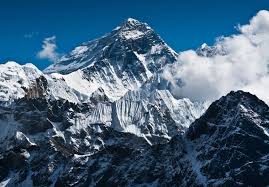n n  n n n n n
n n n n n
Mount Everest is named after a surveyor George Everest and surprisingly, Everest wasn’t happy with that idea.
n n n n n n
A lot of people are aware that Mount Everest is the highest point on Earth.
n n n n n n
Aside from this though, this mountain located in the Himalayas, has some other facts that are quite interesting. Here are five interesting facts about Mount Everest;
n n n n n n
1) George Everest didn’t want it named after him.
n n n n n n
Mount Everest is named after a surveyor George Everest and surprisingly, Everest wasn’t happy with that idea. This happened way back in 1852 when the Great Trigonometrical Survey team identified a mountain on the border of Nepal and Tibet as the world’s tallest. The British initially called it Peak XV until Andrew Scott Waugh who worked under Everest proposed that it be named for his predecessor. However, George Everest opposed it and preferred using native place names while working as a surveyor. It’s even unknown if George Everest ever laid eyes on this mountain that was named after him.
n n n n n n
2) Everest is growing
n n n n n n
Believe it or not, Mount Everest is slowly but steadily growing. The mountain is part of the Himalayan range, which was formed by the collision of the Indian and Eurasian tectonic plates millions of years ago. This process continues, and the mountain rises about 4 millimetres (0.16 inches) per year.
n n n n n n
3) More than 300 people have died on Everest.
n n n n n n
Despite being a dream destination for mountaineers, Everest is also a deadly one. Over 300 people have lost their lives attempting to reach the summit. Most deaths are caused by avalanches, falls, altitude sickness, or exhaustion. The bodies of many climbers remain on the mountain due to the dangerous conditions that make recovery almost impossible.
n n n n n n
4) It takes weeks to climb.
n n n n n n
Climbing Mount Everest takes an average of two months to complete a full expedition, which includes acclimatising to the altitude, setting up camps, and making the final push to the summit. Climbers typically spend weeks at base camp and higher camps to adjust to the low oxygen levels before attempting the summit.
n n n n n n
5) Everest is covered in trash.
n n n n n n
One unfortunate result of Everest’s popularity is the amount of trash left behind by climbers. This mountain is now covered in discarded oxygen bottles, tents, equipment, and human waste that have accumulated over the years, earning Everest the nickname “the world’s highest garbage dump.” In recent years, various cleanup expeditions have been organised to remove waste and restore the mountain’s pristine condition.
n n n n n n
In addition to the above, Mount Everest remains a symbol of adventure, human endurance, and the quest for greatness. For those who dare to challenge it, this mountain is a great test of perseverance and determination.
n n n n